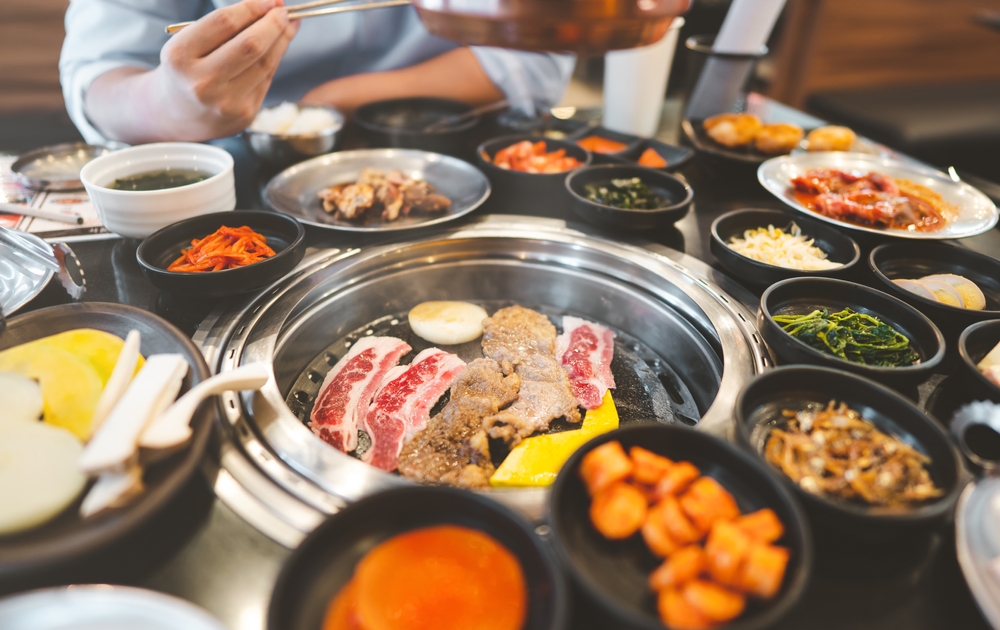
Trending Now: Korean Barbecue
The arrival of 70-degree temperatures here in New England means that it’s outdoor cooking season. Over the next few months, I’ll be grilling burgers, sausages, steaks, kebabs, and, of course, smoked pork butts, ribs, fish, and brisket. But how about Korean barbecue? It’s the next big thing, and I think it provides a great approach to a small group cookout.
Here’s why. First, it’s a truly shared meal, allowing participants to partake of small grilled plates featuring fresh ingredients. A Korean BBQ is interactive cooking together, with a wide range of side dishes. The main attraction is still grilled meats, but bite-size chunks come off the grill and then are wrapped in lettuce and dipped in a sauce before popping them into your mouth.
A unique combination of flavors and textures
Korean barbecue is all about balance and contrast between flavors and textures. What makes the meal unique is the sweet and savory marinade as well as the diverse selection of meats, sauces, and sides. If you find a Korean barbecue restaurant, you’ll probably be grilling the meat right at your table. And if the experience is something you want to share, the next step would be to host your own.
One beauty is that the side dishes usually can be prepared in advance and refrigerated. In addition, the meats can be marinated, the sauces made, and vegetables prepped the day before. Day of, you’ll need to make any rice or noodle dishes to be served. Once the table is set with your grilling source at the center, the fun can begin.
To prepare, here are some tips for food shopping. Your beef and/or pork should have some form of fat and should be cut thinly. If you can’t find fatty beef and pork pre-sliced (or help from your butcher), you could buy a ribeye steak or sirloin and freeze it till it’s firm enough to allow you to thinly slice it. Instead of Korean short ribs, you could buy boneless short ribs and slice them thin, as well. You could also check your grocery store meat department or your butcher to get some pork belly slices (sometimes called side pork). If you prefer chicken, make sure to marinate it. Plan on a half-pound or a little more of meat per person. While a traditional bulgogi marinade tenderizes the beef with pear juice or puree, you’ll be okay if your marinade includes some citrus juices balanced with soy sauce, sugar, garlic, sesame oil, mirin, and a little gochujang (hot pepper paste).
In the international section of your supermarket or at an Asian grocery, you can find kimchi and the gochujang. You’ll need the usual Asian ingredients – sesame oil, sesame seeds, soy sauce, fish sauce – and then you’re set. If you have that base, it’s just a matter of getting any additional vegetables, rice, and noodles for the meal.
A must: crunchy vegetables
Don’t forget the iceberg or Boston lettuce for a wrap. Fresh greens and garnishes are essential. The combination of the crunchy ingredients helps balance out the salty, fatty, and sweet flavors of the marinated meat. You might also make some seasoned carrots or cucumbers with sesame seeds. For the carrots, cut them into matchstick strips and combine them with a tablespoon of sesame oil and some salt. For the cucumbers, slice them into rounds and combine with sea salt, sesame oil, and a sprinkling of sesame seeds. In summer, slice a couple of garden-ripe tomatoes and top them with honey.
As for prep, you’ll need to marinate the meats with a good bulgogi or kalbi sauce. You can make your own simple barbecue sauce with sesame oil, salt, and pepper. Here’s a recipe for Korean Ssamjang sauce.
For grilling, you can start with an electric fry pan, a tabletop grill, or even a hibachi. If you think this might become a repeatable experience, consider springing for a tabletop grill. (An Iwatani butane camp stove and a grill plate will cost you about $90, for example.) And make sure you have enough good-quality (and long-ish) chopsticks for your guests.
Now you’re ready for a fun time with your guests. Maybe buy the traditional soju alcoholic drink for the grownups as part of the experience. Then I think you’ll all be ready for the karaoke that’s often part of the Korean barbecue experience. As Koreans sometimes say before a meal: “jail meokgetseumnida,” or “I’ll eat well.”
From your email, please click on the headline to view the blog on the website. You can log in and comment at the end of the blog to share your thoughts and start a discussion, or suggest a topic for Farmboy in the Kitchen.
If you’d like to share the blog, click on the Facebook icon or one of the others. Thanks!




